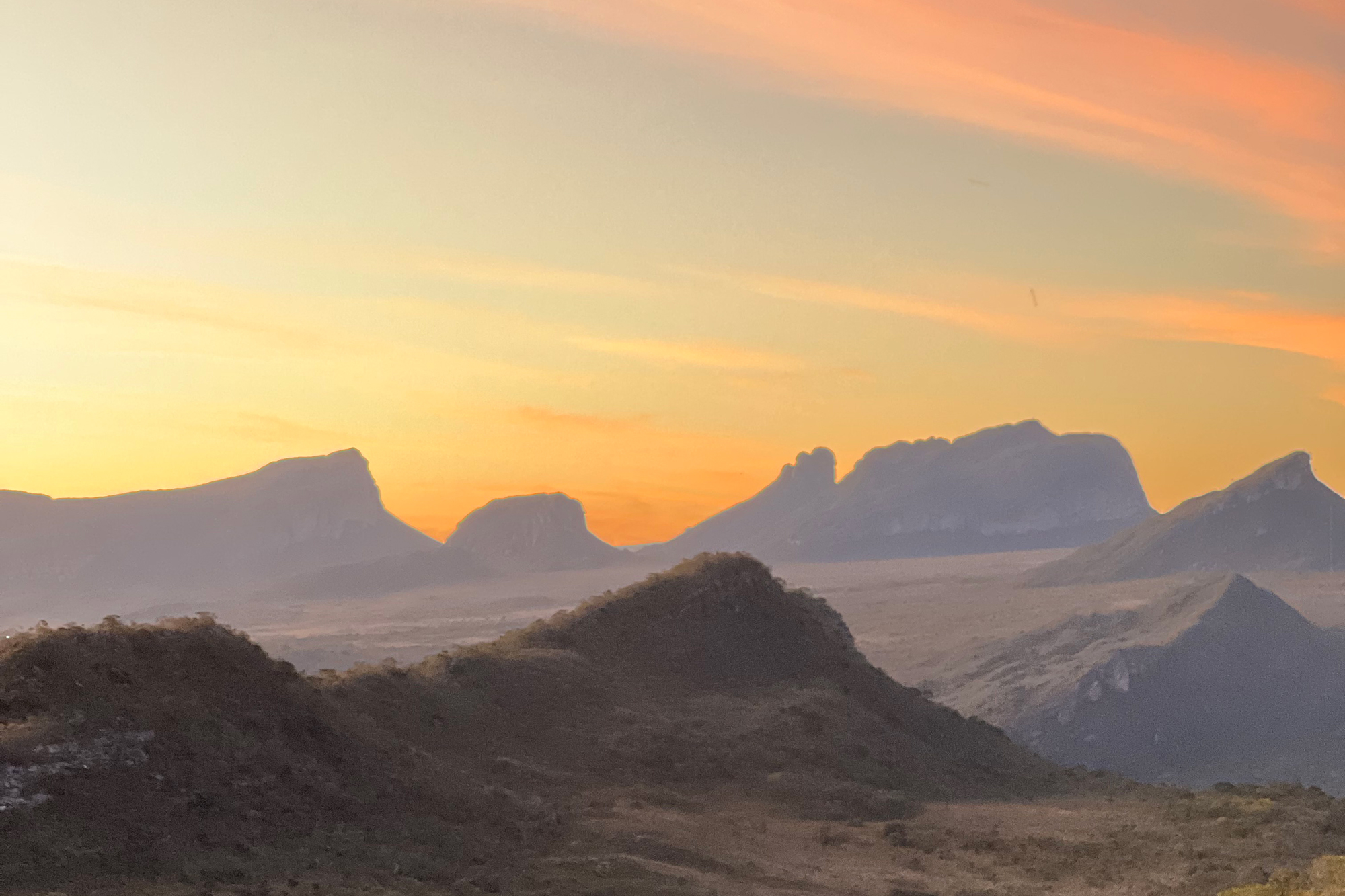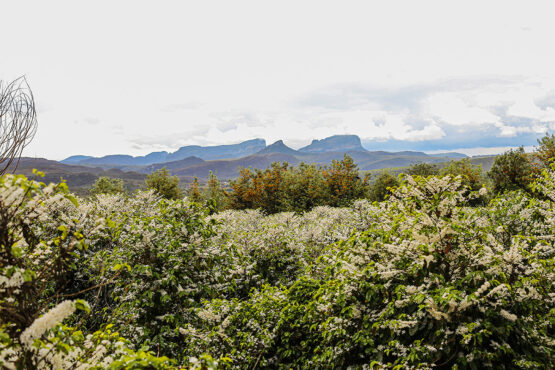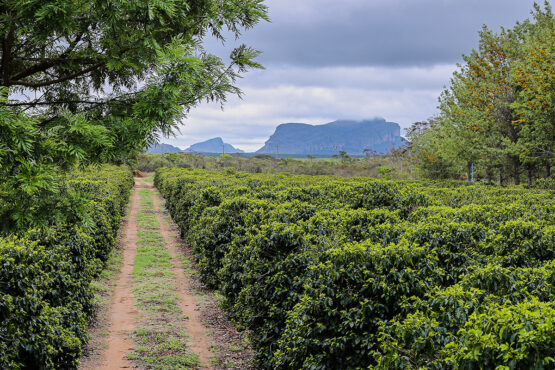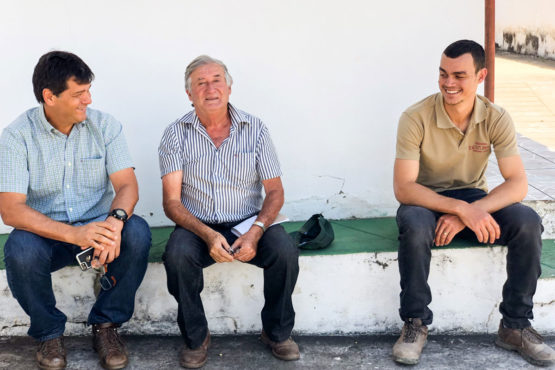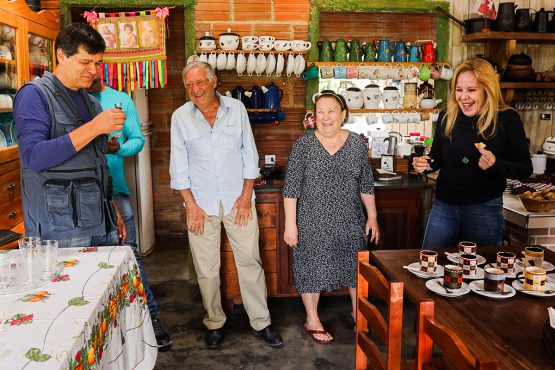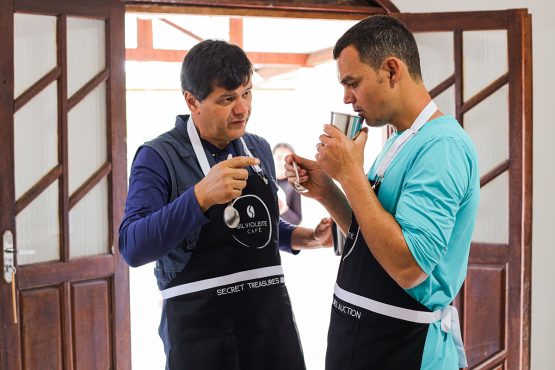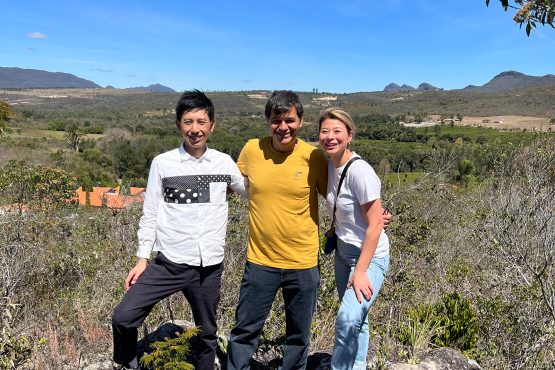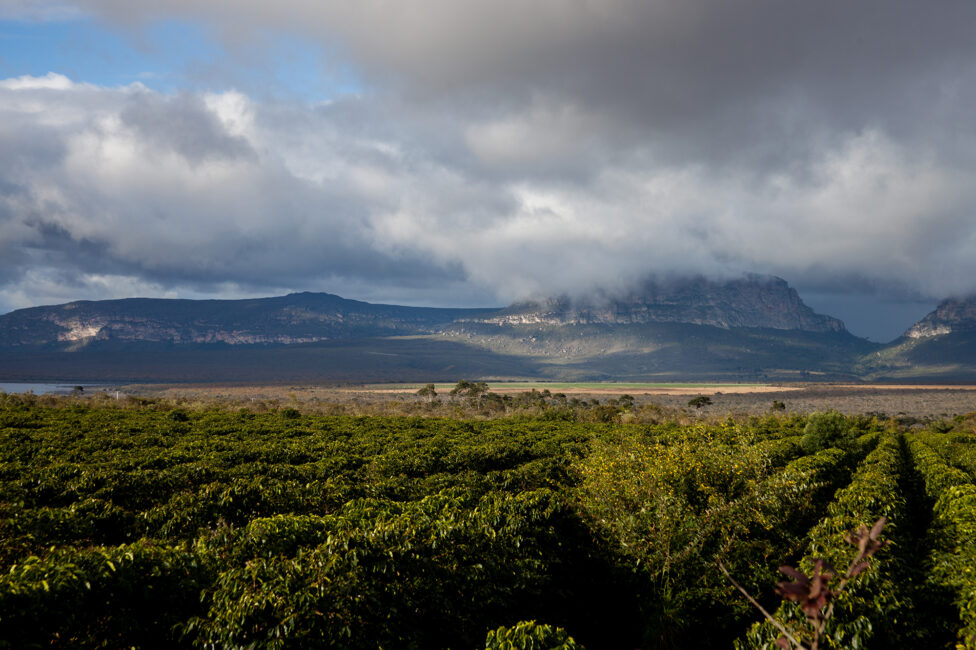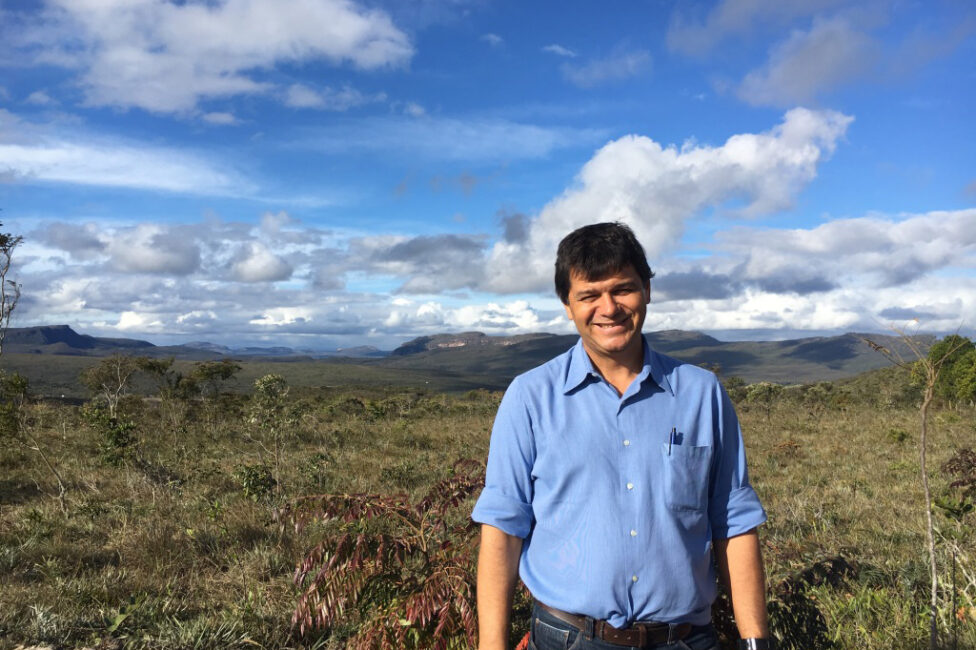Beautiful Piatã
The hills and valleys surrounding the small town of Piatã, located in Brazil’s Chapada Diamantina mountain range, are home to a tight knit community of independent farmers who produce some of the country’s most exquisite and internationally renowned coffees. We’re proud to represent their coffees here in Australia, and to connect our roasting partners to this singular producing region.
Published 17 Mar 2023
Coffees produced in Piatã tend to be very floral, sweet and complex, and quite different from those that we source elsewhere in Brazil. The town is home to some of our most treasured producing partners, including our dear friend and coffee mentor Silvio Leite (who also owns Cerca de Pedro São Benedito), Cup of Excellence stalwarts Antônio and Terezinha Rigno of São Judas Tadeu, and the young, forward-thinking Kleumon Moreira of Sítio Canaã.
We were first introduced to the region by Silvio in 2009, after it gained international recognition when five of the top 10 spots from that year’s Cup of Excellence (COE) came from Piatã. The region’s dominance in competition has continued to grow, with particular success in 2016 when an astounding 19 of the 24 winning lots were grown by Piatã’s producers!
The region of Piatã is the traditional home of the Cariri and Maracá indigenous people, who were defeated during the Portuguese invasion of Brazil in the seventeenth century. While most of the remaining Cariri people were displaced to other regions within the state of Bahia, eventually becoming members of other indigenous communities, the Maracás have a nearby municipality located on their historical capital city named in their honour. The word “piatã” translates to “hard foot or fortress” in the indigenous Tupi language (which was spoken by most First Nations People along Brazil’s coast).
Piatã’s terroir is unique in Brazil, and contributes greatly to its strong regional distinction. The soil is nutrient-rich and slightly humid, creating a healthy and diverse ecosystem that is home to some 1,600 individual plant species. While the highlands of the Chapada Diamantina are rugged and dry, the area surrounding Piatã is filled with streams, waterfalls and even swamps, providing more than enough water for proper irrigation and agricultural techniques.
Coffee here grows at elevations of up to 1,400 meters above sea level – unusually high for Brazil – in some of the lowest temperatures the country experiences, ranging between 2°C to 18°C in winter. Piatã’s relative closeness to the Equator line ensures coffee trees can experience such extreme conditions without being affected by frost, unlike more traditional coffee-growing regions in the country’s south. Combined, the high elevation and cool climate slow down the maturation of the coffee cherries considerably. The result is a cup profile that is bright, transparent and complex.
As Silvio explained during our last visit, terroir is only one half of the equation, with collaboration and cooperation amongst the community’s farmers another key factor. In a town where everyone knows each other, working together ensures the overall success of the region. “By establishing my farm Cerca de Pedra São Benedito in Piatã I get to be among many Cup of Excellence winners. It makes us very happy to be sharing the information we have gained with other producers in the region who are choosing to focus on specialty. We are very open in sharing this knowledge with other producers”
And as Silvio shares, awards like COE placements not only bring acclaim the community, but can inspire individuals in the region to produce higher quality lots. “This recognition makes producers feel proud of the work they’re doing. This is a key point for the future as well.”
Growth through collaboration and openness has become a major focus for Silvio, and incentivises his work as an industry leader in Piatã. “We want the farm to be like a school. Neighbours are welcome to come and have a look, to learn how we are processing our coffee, to learn about the varieties we are using and they can see firsthand how we are growing and they can make decisions on how to run their own farms. We’re doing things step-by-step, it’s a lot of work—but this work makes me feel good!”
The region’s community-minded approach is exemplified in Antônio and Terezhina Rigno, who own and operate São Judas Tadeu – one of Piatã’s most respected and awarded farms. Their hard work, expertise and exceptional coffees have been a driving force behind the region’s international recognition, and the couple continues to promote Piatã’s success through their mentorship and support of neighbouring producers.
One such producer is Kleumon Moreira, who began his career in coffee under Antônio’s tutelage. The two worked side-by-side for over a decade at São Judas, with Antônio teaching Kleumon everything from how to plant and care for the trees through to good processing techniques. In 2016, using all of his savings along with a small loan from the bank (for which Antônio was his guarantor), Kleumon put together enough to purchase a 10-hectare plot of land, which he planted with coffee and named Sítio Canaã, or ‘Blessed Land’. The knowledge and experience Kleumon gained from his time with Antônio has played a crucial role in establishing a successful coffee business and helped him make a name for himself among his peers.
Today, Kleumon works closely with Silvio as his “boots on the ground” in town, assisting new farmers interested in moving to specialty production, and sharing his expertise—thus paying forward Antônio’s investment in Kleumon’s future, and ensuring the community continues to benefit from their work.
Every time we visit Piatã, we are invigorated by the honest, open and engaging interactions we share with its community. During trips, we spend as much time being hosted by the farmers and their families – which usually includes a delicious meal and freshly brewed cup of coffee – as we do cupping or touring coffee farms. The result is strong sense of connection and transparency, which ultimately results in a more stable and secure supply chain. As Silvio states: “We have many smaller producers in Piatã, and they are doing better and improving their lives by producing high quality coffee. I’m happy to be transparent with them and with buyers like MCM, because you know all of the suppliers, you can talk to them, and you can see how well they are doing and the recognition they are receiving.”
Coffees from Piatã are harvested from August through to November, and typically land in Australia between January and March. To read more about Brazil, and how we source, head to our origin page – or get in touch anytime to connect with our team!
